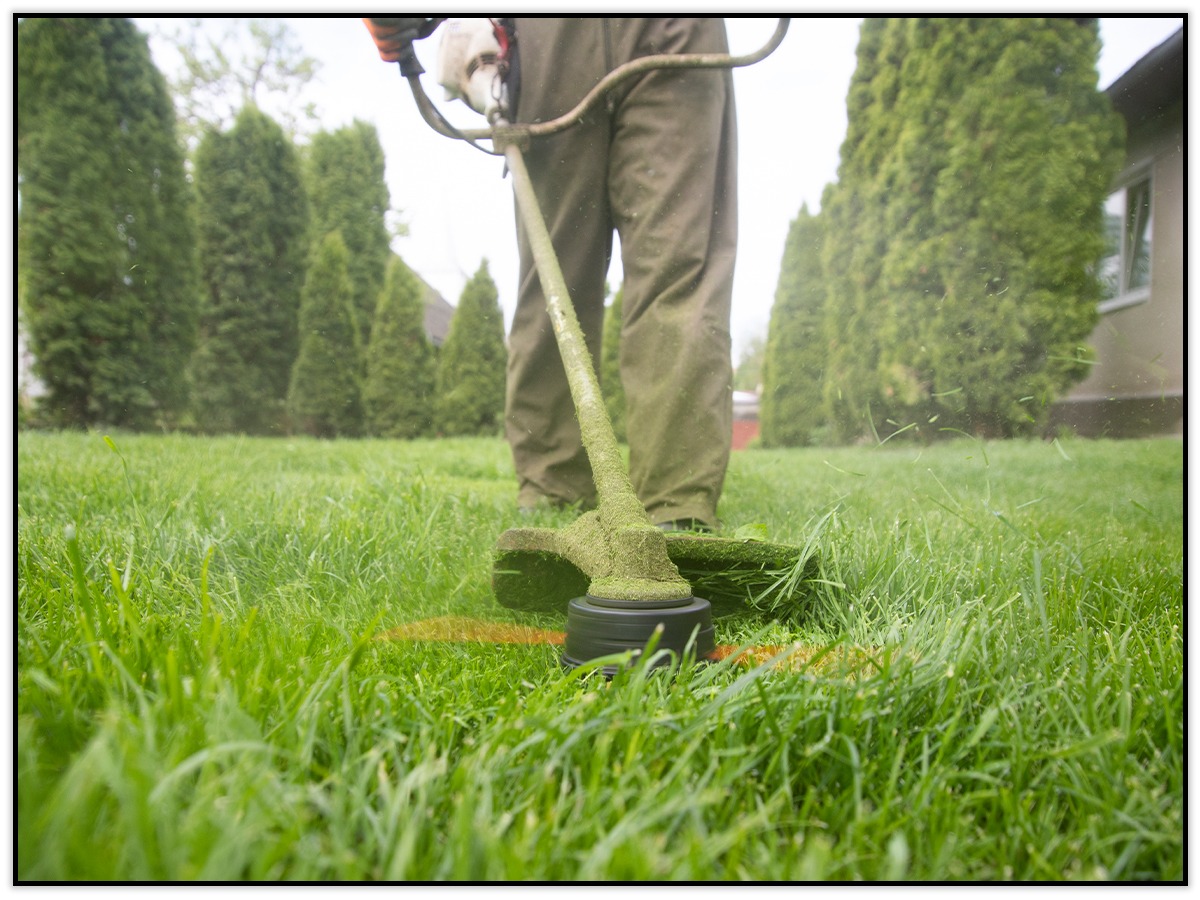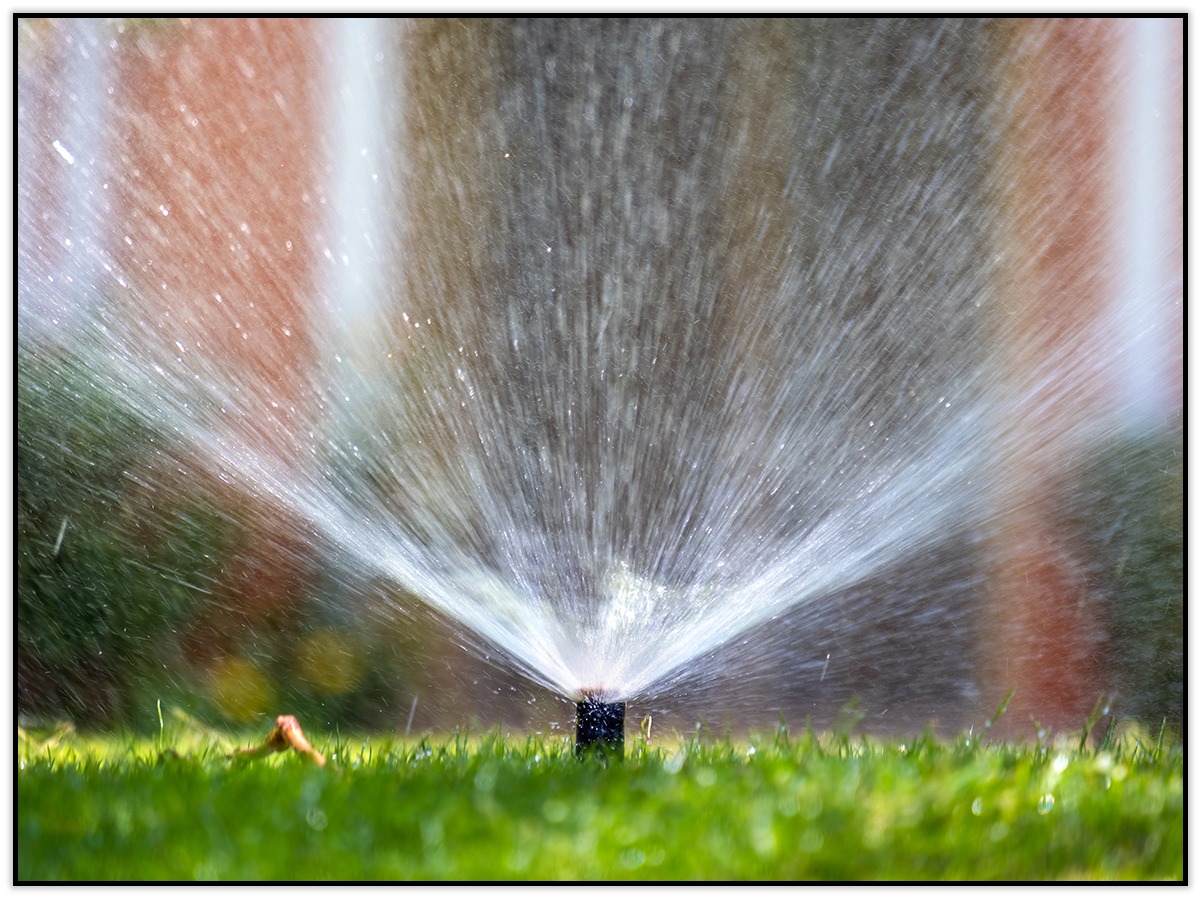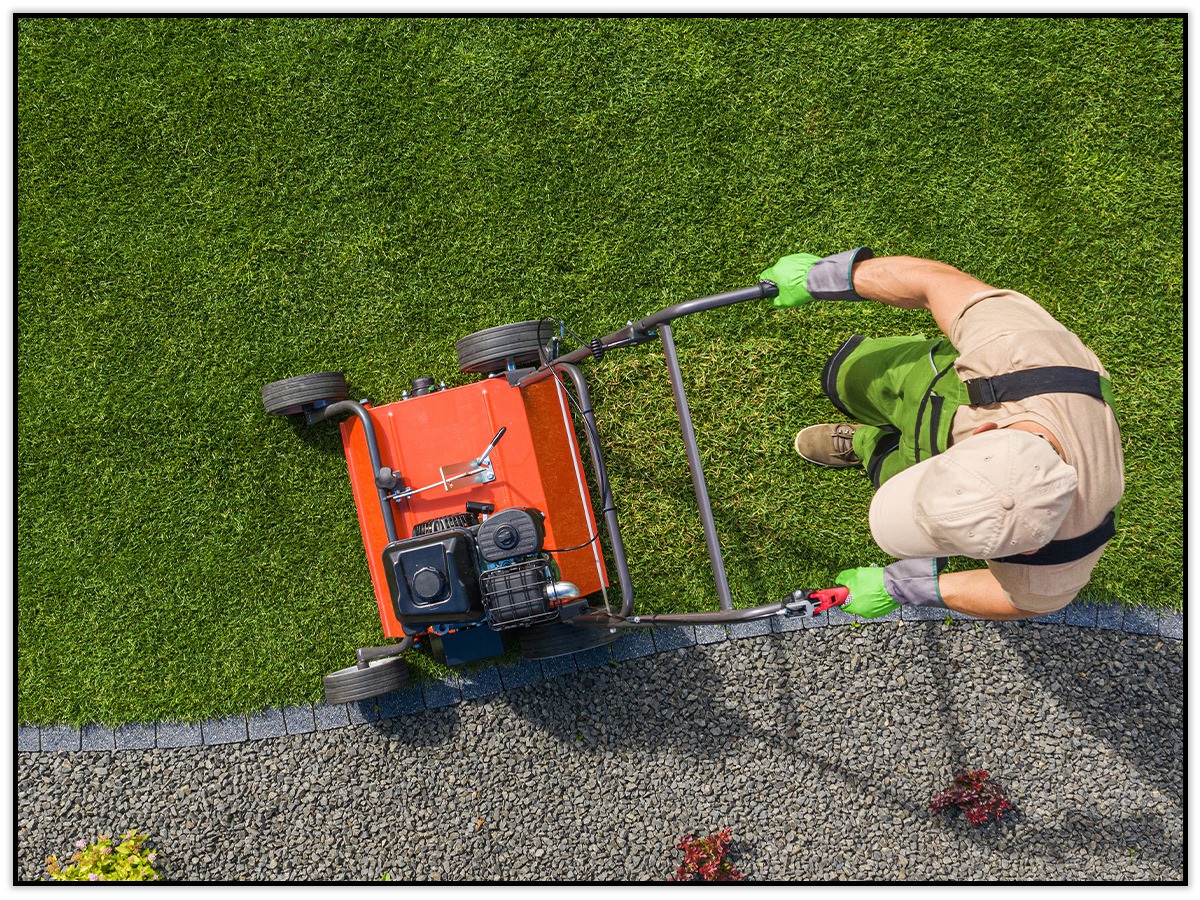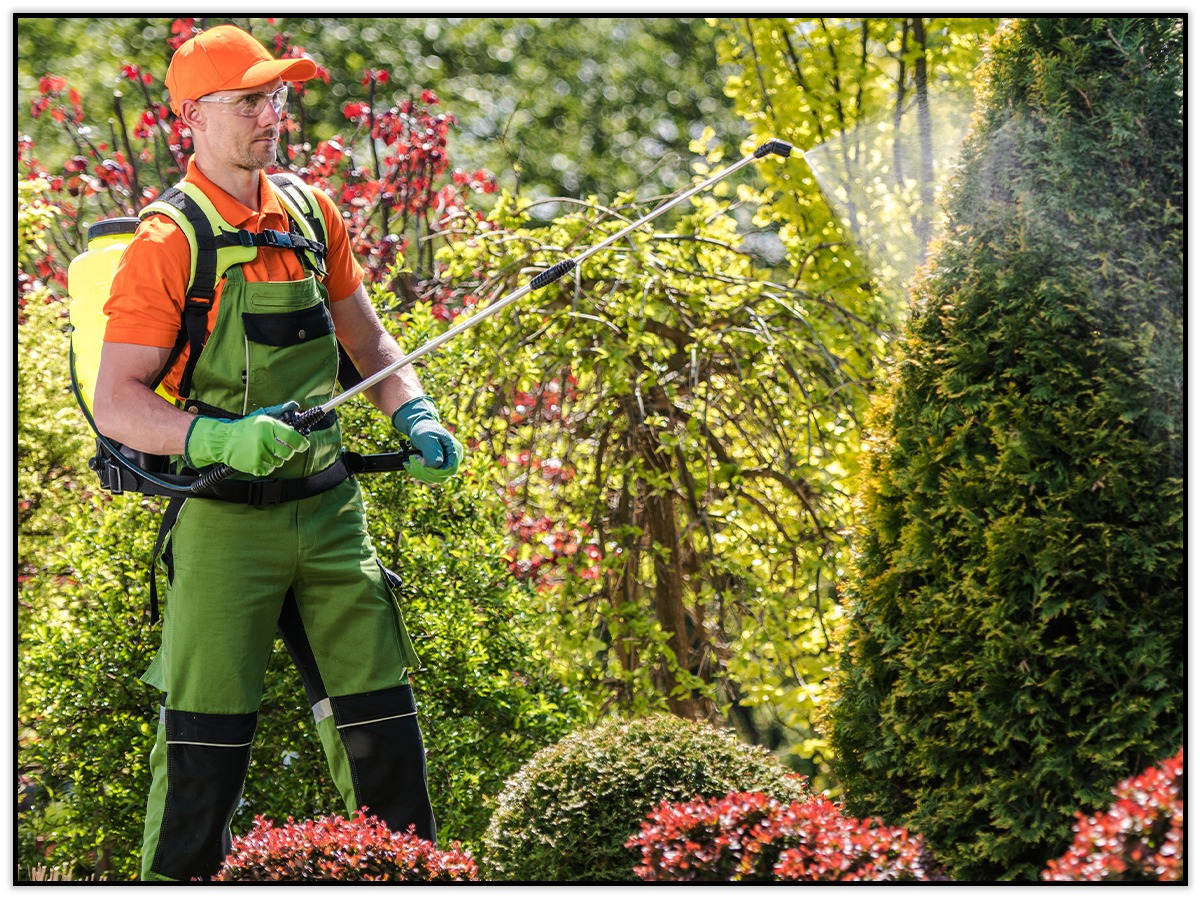Everyone gets a little anxious about new responsibilities, whether it’s getting your first pet or owning your first home – it’s completely natural! Caring for your first lawn is a great feeling. Learning a few lawn care tips can make your backyard dreams come true.
Lawns are a substantial part of any home’s curb appeal. Keeping the yard looking nice is a tricky task. We know that being a newbie lawn caretaker isn’t the most significant responsibility you’ll encounter in your life.
If the idea of gazing upon a beautifully landscaped yard excites you, you’ve come to the right place. Whether you’re a new homeowner or haven’t had the time to get your hands dirty, our guide to lawn care tips for beginners are easy-to-follow.
Here Are Top 10 Lawn Care Tips For Beginners
1. Know Your Grass Type
Learning each other’s names is a good jumping-off point when starting any new relationship. Don’t worry; we’re not suggesting you introduce yourself to your lawn. However, taking care of your new yard will go much smoother if you know your grass’s name.
A little research will help you identify what type of grass you have. Knowing about your grass type is a great lawn care tip.
There are numerous grass types, each requiring a different level of care. Some grass types will blossom in your region’s climate, while others will struggle to survive.
Grass species fall into two types: Cool-season and warm-season grasses.
- Cool-season grasses thrive best in the Northern states, where summers are mild and long winters. Cool-season grasses fall when temperatures are low and actively grow in spring.
Cool-season grasses include:
- Kentucky bluegrass
- Fine fescue
- Tall fescue
- Warm-season grasses flourish best in the Southern states, where winters are mild and long summers. Warm-season grasses actively grow in summer and favor warmer temperatures.
Warm-season grasses include:
- Centipede grass
- Bermuda grass
- Zoysia grass
But what if you live in the middle of the country? This area is the transition zone, with frigid winters and scorching summers. You can grow either type of grass in the transition zone.
In the transition zone, your yard has warm-season grass if you have a green lawn in summer. On the other hand, it’s cool-season grass if your yard is brown in summer.
2. Say Hello To Your Soil
Soil isn’t just a pile of dirt that magically springs grass. Your turf will struggle without fertilizers if your soil has low organic matter and nutrients. Knowing your soil well is an essential lawn care tip.
Soil texture affects various factors. For example, you won’t have to water a clay lawn often as clay soils retain water much better than sandy soils.
So before you decide anything about your lawn care routine, you need to know your soil. But, how do you do that? By conducting a soil test, of course!
A soil test uncovers many mysteries about your soil, including:
- Organic matter percentage
- Fertility levels
- pH levels
- Texture (relative proportions of silt, sand, and clay)
- Salt levels
3. Fertilize Your Turf
Before spreading fertilizer, refer to your soil test results to check for the best fertilization program for your lawn.

Your lawn requires three essential nutrients to flourish grasses: Nitrogen, Phosphorus, and Potassium. Results from a lab soil test will often recommend the ratio of all the three nutrients that’s best for your soil.
Most fertilizers list the nutrients ratio on the label. If a fertilizer package lists the numbers 20-10-12, that means the fertilizer contains 20% nitrogen, 10% phosphorus, and 12% potassium.
4. Seeding and Overseeding
- Seeding
Is your house on a new lot, and it’s up to you to add grass to the yard for the first time?
If you start from scratch, planting fresh and new grass seeds is your best and most affordable lawn care tip for a healthy-looking yard.
Seeding is a perfect way to grow plentiful grass. If you’re thinking of seeding, we recommend researching seeding tips according to your region. Find the most suitable time of year to seed your grass to give yourself the finest chance of successful growth.
-
Overseeding
While you may be new to your lawn, your newly acquired property doesn’t require a complete fix. Just a touch-up is all you need. If you’ve noticed spots in your yard in damaged grass areas, you may want to consider overseeding.
Overseeding is adding new grass seeds over the grass that is already present. This technique is ideal for treating brown, thinning areas and can help your lawn look healthy, dense, and thriving.
Overseeding also helps strengthen grass’s ability to fight future damage from drought and other problems. It is most successful when combined with aeration.
5. Water Wisely
An essential lawn care tip is to know how often and how much you should water your lawn. Watering depends on the season and your location. Your best resource for watering your area is a local lawn care professional, so checkout ProGreen Lawn Services if you’re considering hiring one.

However, if you’re on your own, consider a few things before setting up your sprinkler system. Watering must be done sincerely and thoroughly to establish healthy and strong roots in your yard.
Ideally, your grass requires 1″ to 1.5′′ inches of water per week, and the water seeps into the soil. However, it varies depending on location and time of year.
Pro Lawn Care Tips: Over-watering your lawn can be as unhealthy for it as not watering enough.
6. Mowing
If mowing seems an easy task that doesn’t require much thought, then think again. Before pushing your mower around, you should know a few things
Cutting your grass short may seem the quickest and easiest option, but trimming can put a lot of pressure on your turf. It can also impact the health of your yard.
- Lawn Care Tip 1: Adjust your mower blades to cut off about 1/3 of the grass’s length. For example, if your grass is two to three inches high, you should trim approximately one inch.
- Lawn Care Tip 2: After every mow, clean the undercarriage and keep the blades sharp. Dull blades can tear and rip your grass.
7. Fertilizing
We all know vitamins are essential to keeping us healthy. Well, the exact goes for your grass. A vital lawn care tip for beginners is that fertilizer is necessary for the well-being of your grass and turf.
If you’re fertilizing your yard without a professional, we recommend selecting a granular product that simplifies the process. Purchase the nutrient-rich product and always follow the directions on the label.
8. Aerating
Aeration might sound like a spa treatment for your lawn. It loosens compact soil and gives your turf’s roots to get access to oxygen, water, and nutrients. Lawn aeration helps your lawn keep up with all your fun in the sun.

Lawn care tips: Most lawns need aeration yearly, especially land with clay soil. If your yard has sandy soil or functions well without aeration, aerating once every three years is enough.
9. Fighting Weeds
Freshly planted lawns can even inherit weeds and their seeds. Weeds absorb the nutrients and water from the grasses. Unfortunately, the struggle against weeds is almost impossible to avoid.
We’d always advise a professional to handle your weed problem as they can effectively remove them forever.
But if you’re ready to accept the challenge, here are a couple of lawn care tips to help you fight weeds:
- Wherever you see a weed permeating the topsoil, know more weed seeds are underneath waiting to take their place.
- When removing a weed, try not to disturb the soil. Tossing the ground will make it easier for new weed seeds to rise and grow.
10. Pest Control
Controlling pests in your yard can be achieved by hiring a professional, or you can purchase products at your local garden store. Try not to go overboard, as many insects you find on your lawn are beneficial. Remove only the damaging and harmful pest insects.

A vital lawn care tip is that all yards will have insects, and most insects are not dangerous for your yard or family.
Don’t Be Afraid to Ask for Help
We know that a great sense of pride comes from having a well-maintained yard that you possess. We love that! However, don’t let that pride stop you from asking for help when needed.
If the outcome is not what you expected, have a certified lawn care specialist like Pro Green Lawn Services take a look. It’s far better to ask for help from a professional before the problem gets out of control. To get professional help or advice, contact us now!


